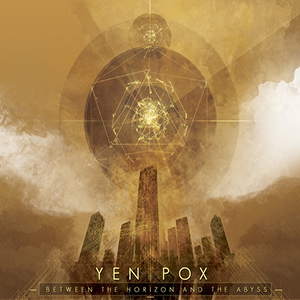 This sort of dark, atmospheric work has always been a favorite of mine, but too often I find the records hard to discern from one another. Between the Horizon and the Abyss does not have this problem at all, because while there is a consistency from piece to piece, it is far from monochromatic. Each individual composition has a distinct sound and mood that makes for a dynamic, ever changing piece of music. That variation from piece to piece is where this album excels.
This sort of dark, atmospheric work has always been a favorite of mine, but too often I find the records hard to discern from one another. Between the Horizon and the Abyss does not have this problem at all, because while there is a consistency from piece to piece, it is far from monochromatic. Each individual composition has a distinct sound and mood that makes for a dynamic, ever changing piece of music. That variation from piece to piece is where this album excels.
From the first moments of opener "The Awakening", Michael J. V. Hensley and Steven Hall set the mood for the remainder of the album.A sweeping bass abyss looms heavily, as a series of heavily processed and mangled sounds are shifted in and out.The components they use may be the standard for the "dark ambient" genre, but the duo keeps evolving and moving the composition rather than becoming overly stagnant."In Silent Fields" is from a similar mold, with low end rumble and noisy stabs being the primary focus, with bits of what sounds like human voice blended deep into the mix.
The instrumentation, while never clear, varies greatly throughout the album, which keeps it fresh and dynamic.For example, "White of the Eye" begins with what sounds like it could be a passage of distorted guitar, and later is mixed with the last transmissions of a dying orchestra."Tomorrow in Ruins" has the duo emphasizing synthesizers, with metallic and sharp waves of noise cutting through.As the piece goes on, there is a tangible sense of decay, both figurative and literal with the electronics crumbling away throughout its duration.
Rhythmic elements make an appearance on "Cold Summer Sun," largely in the form of what sounds like rattling spring reverb effects.Atop a low, undulating electronic drone, these hollow metallic echoes and other clattering noises make for a complicated, creepy piece of unidentifiable sounds."Ashen Shroud" has a bit of rhythm in what sounds like a cavernous, subterranean water drip, which gives the composition a slightly different sensibility to it.Comparatively there is a bit more light here than most of the album, like sunlight shining through the tiniest of cracks.
The concluding "The Procession" is also a bit lighter and less rumbly than most of the pieces here.However, as part of an overall bleak and dissonant piece, it feels less like sunlight and more like an all destroying nuclear blast.
Yen Pox manages to supersede the tendency to simply emphasize bass frequencies and bury everything in reverb to attempt sounding creepy.Instead, this album is a high water mark, with Between the Horizon and the Abyss being eight distinct pieces that all work brilliantly as their own individual cinematic psychodramas.Cinematic may be a term that is often overused, but it is befitting an album of this depth and complexity.
 
samples:
 
Read More

